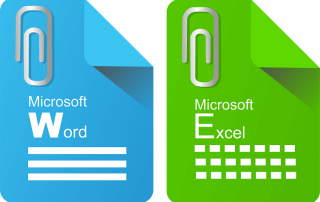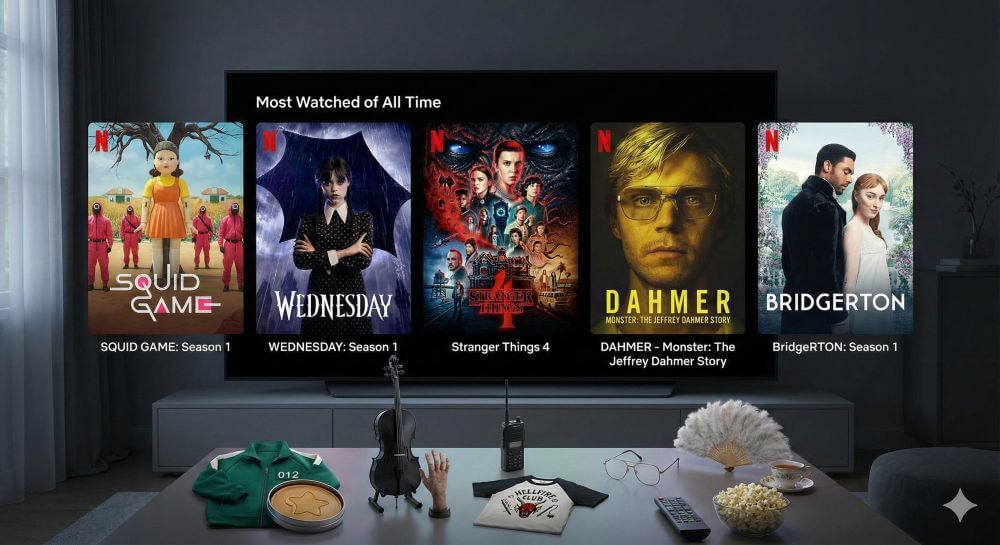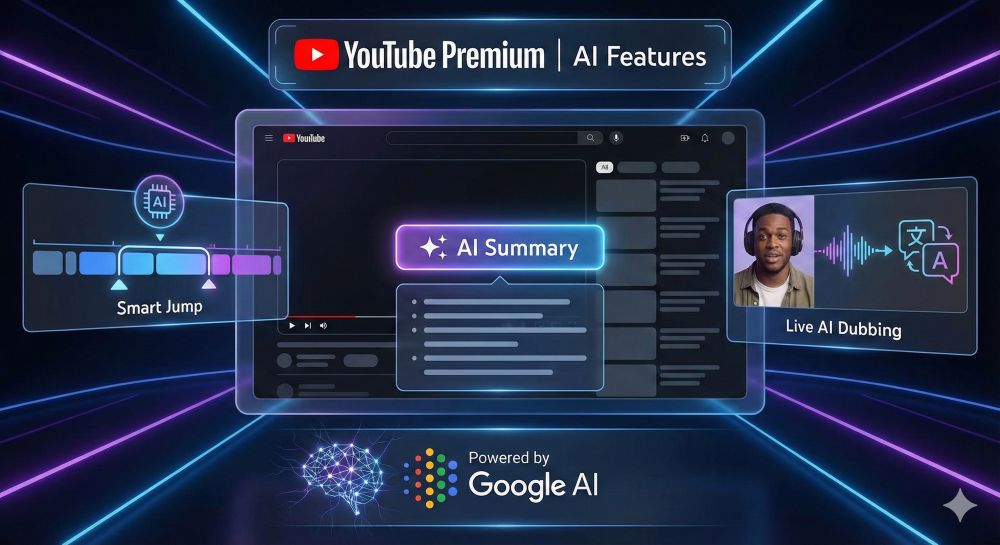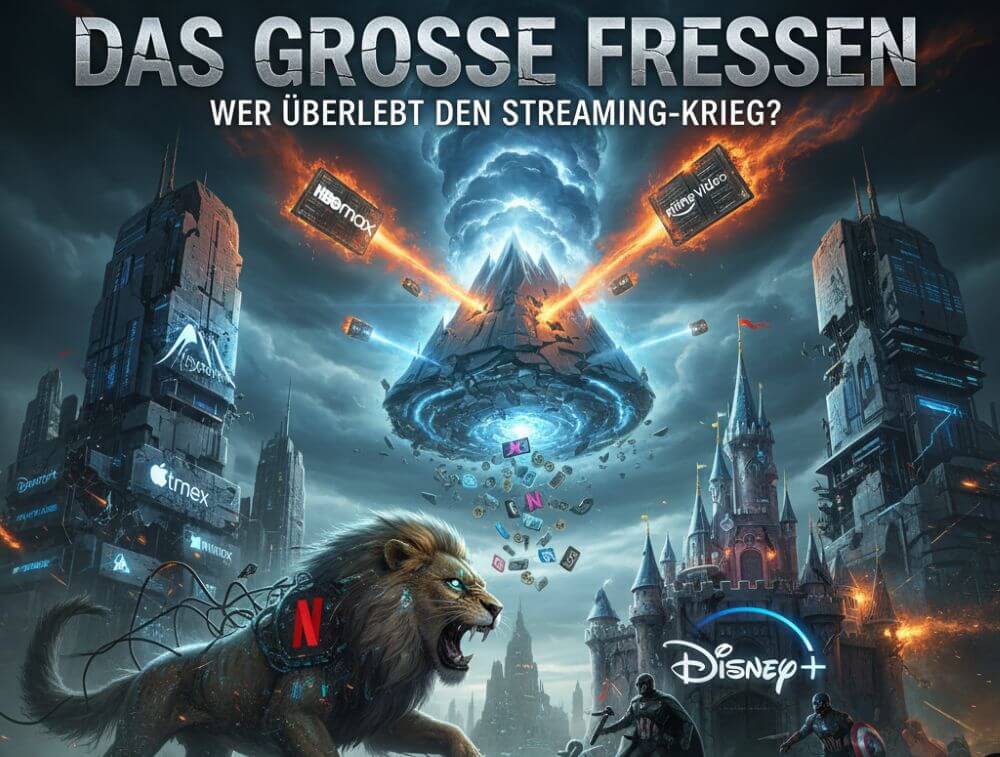Why the brutal fight for live sports rights makes us all losers
The hunt for the last great TV bonfire is on. Streaming giants and traditional broadcasters are outbidding each other in a frenzied race for exclusivity. But the bubble is bursting – and in the end, we’ll all foot the bill.
It’s a nightmare for every fan. Anyone who simply wants to watch the Bundesliga on the weekend now needs half a dozen subscriptions. Those who want to follow the Champions League have to switch back and forth between Amazon Prime and DAZN. And Formula 1? Yet another provider.
What seems like a luxury problem is actually the front line of a multi-billion-dollar war. A war in which there appear to be only losers: the fans, who pay absurdly high prices, and the providers themselves, who are maneuvering themselves into a financial black hole.
Welcome to the battle for live sports rights – the most expensive multi-billion-dollar boondoggle in the modern media landscape.
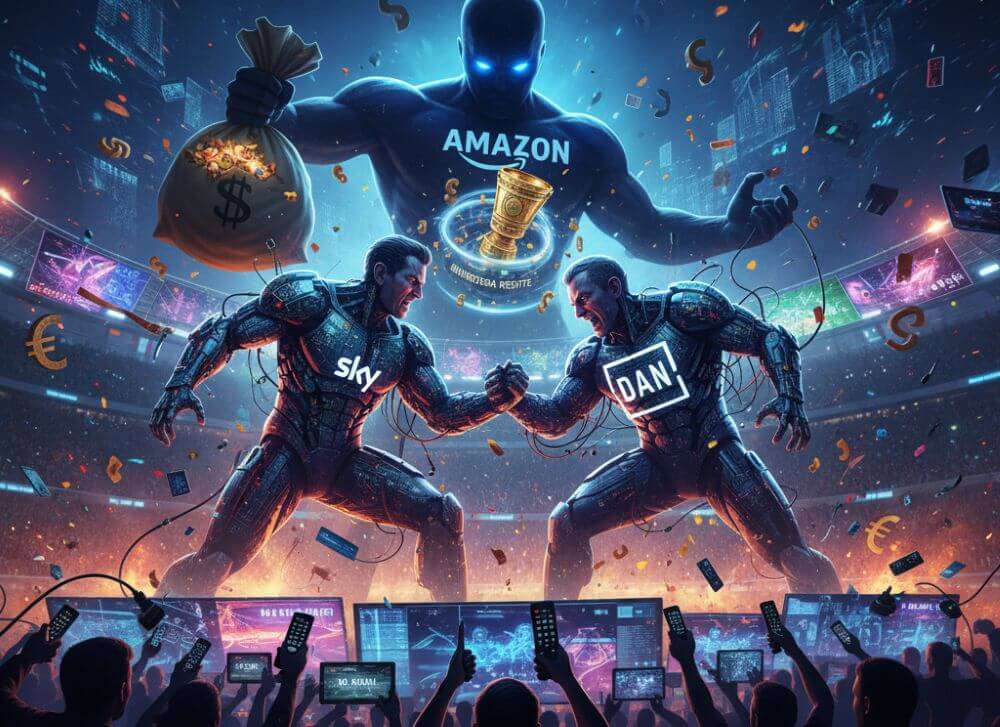
Sport: Why the “last campfire” is priceless
To understand the absurdity of this, one must grasp the value of the commodity. In a world of on-demand streaming, where everyone can watch “Game of Thrones” or “Stranger Things” whenever they want, live sports are the last bastion of linear television.
Sports are:
- Spoiler-prone: You have to see it live.
- Emotional: It engages fans like no fictional content.
- Exclusive: Only one broadcaster can show the Bundesliga on Saturday at 3:30 p.m.
This exclusivity is the “Holy Grail” for subscription services. Sports are the ultimate “subscriber magnet.” DAZN didn’t become big because of its documentaries, and Sky doesn’t stay afloat because of its feature film archives. They live off the Bundesliga, the Premier League, and the Champions League.
The Gladiators: A Fight to the Death
Three types of fighters stand in the ring, and their motives couldn’t be more different.
1. The Attackers (DAZN & Co.) For streaming services like DAZN (pronounced “Da Zone”), sports aren’t an add-on; they’re their livelihood. They have to win the rights to gain subscribers. The problem: This model is a bottomless pit.
- According to reports, DAZN has accumulated billions in losses in recent years. The strategy was “growth at any cost”: First, attract fans with low prices, monopolize the market, and then raise prices.
- We’re now in phase two. The massive price increases of recent years weren’t an act of greed, but pure desperation. The astronomical sums they pay for the rights (e.g., to the DFL for the Bundesliga) have to be refinanced somehow.
2. The Defenders (Sky & traditional broadcasters) For the dominant player Sky, the fight is a pure struggle for survival. They practically invented sports as we consume them today. Every right they lose to DAZN or Amazon is a blow to the heart of their business model. Sky cannot afford not to bid, even if the prices exceed all business rationale.
3. The Tech Giants (Amazon, Apple, Google) This is the real danger. For corporations like Amazon or Apple, sports are just a tiny piece of a vast ecosystem.
- Amazon is using Tuesday’s Champions League as bait to entice people to sign up for Prime (and then order diapers, books, and electronics).
- Apple is using MLS (the US soccer league) with Lionel Messi to push its hardware (Apple TV) and its TV+ service.
These companies don’t need to make money from sports. They can simply outbid the competition, financed by their cloud services or iPhone sales. They’re using sports as a catalyst for their core business.
The billion-dollar boondoggle: Why the plan doesn’t add up
The core of the problem is a simple, brutal math problem: Subscription revenue falls far short of covering the costs of the rights.
If a provider (like DAZN or Sky) pays €1 billion per year for a rights package, at a price of €30 per month (€360 per year), they would need almost three million subscribers who sign up solely for that package – just to cover the costs, without a single cent of profit, marketing, or production expenses.
The reality is that many subscribers cancel as soon as the season ends or share accounts. The market is oversaturated.
The Spiral of Madness:
- Provider A outbids Provider B with an exorbitant sum.
- Provider A has to drastically increase prices for all customers to cover costs.
- Customers cancel their subscriptions, either in frustration or because they can no longer afford it.
- Provider A incurs massive losses but faces renewed pressure in the next rights auction, as losing the rights would mean immediate bankruptcy.
The Laughing Third Party: The Leagues
While broadcasters cannibalize each other, there is one clear winner: the leagues. The DFL (Bundesliga), UEFA (Champions League), and the NFL (American Football) are rubbing their hands with glee. They have perfected the art of bidding wars. By dividing the rights into ever smaller packages (Saturday game on Sky, Friday game on DAZN, top match on Amazon), they maximize revenue. They force multiple players to come to the table.
While this windfall finances the exorbitant salaries and transfer fees in professional sports, it further exacerbates the alienation of fans from their sport.
Conclusion: The bubble must burst – and the fan will pay.
We are currently witnessing the endgame of a ruinous poker game. The “gold rush” is over; now comes the hangover. It is obvious that the current model is not sustainable.
What are the consequences?
- Consolidation: One of the big players will lose the battle. Whether it’s Sky or DAZN, one provider will no longer be able to shoulder the billions and will either give up or be swallowed up.
- “Super subscriptions”: Prices will continue to rise. Providers are forced to minimize their losses. Sports consumption is becoming a luxury.
- The fan as the loser: In the end, it’s the fan who has to dig deep into their pockets for their passion, navigate through a dozen apps, and still feels like they’re being taken for a fool.
The battle for sports rights has become a “money pit,” dug by the providers themselves and fueled by the leagues. And as with any grave, someone has to pay for it in the end.
Beliebte Beiträge
Microsoft Office 2021 – Is the switch worth it?
Since October 5, 2021, the time has finally come. After Office 2019, Office 2021 is now at the start. We took a closer look at the new Office version and found out whether the switch is worth it.
Excel Scenario manager and target value search
How you can use the scenario manager and target value search in Excel 2016/2019 to present complex issues in a space-saving and clear way.
Insert controls and form fields in Word
With Microsoft Word you can not only comfortably create letters, lists and articles with tables of contents, but also go one step further, and Set up your own forms using controls.
Apply nested functions in Excel
Nested functions in Excel offer the possibility to combine several arguments with each other or to exclude conditions. We explain how it works.
Insert Excel spreadsheets into Word Documents
So you can easily insert Excel spreadsheets into Word and link them together to get a dynamic document.
Create vacation planner in Excel
We explain how you can create your own vacation planner 2022 in Microsoft Excel. And of course with a display of public holidays and weekends.





